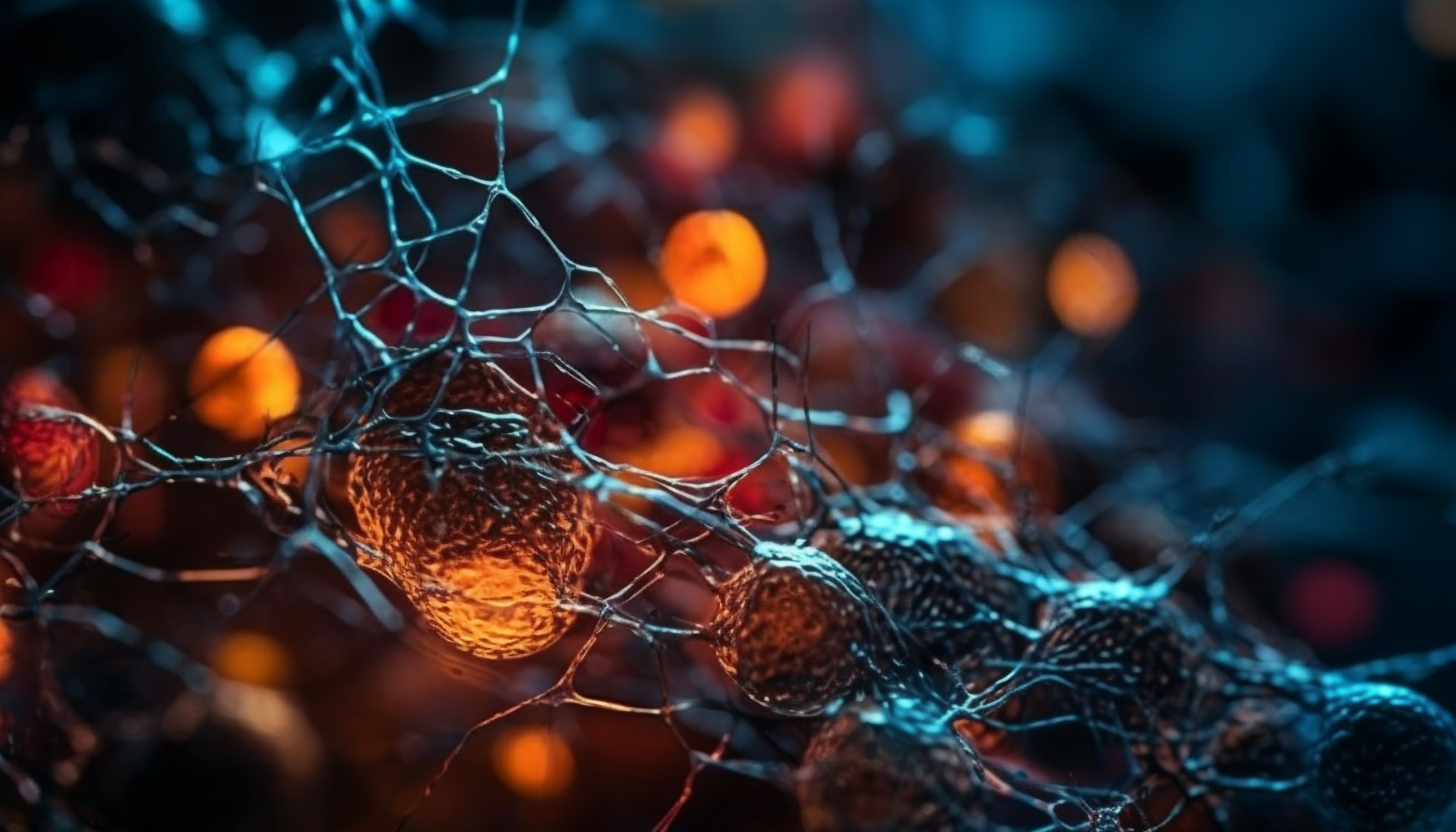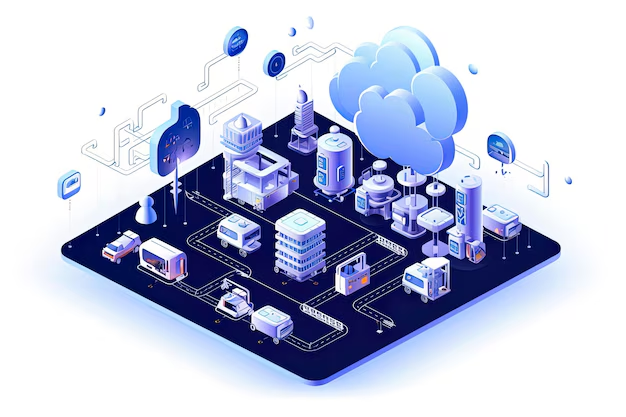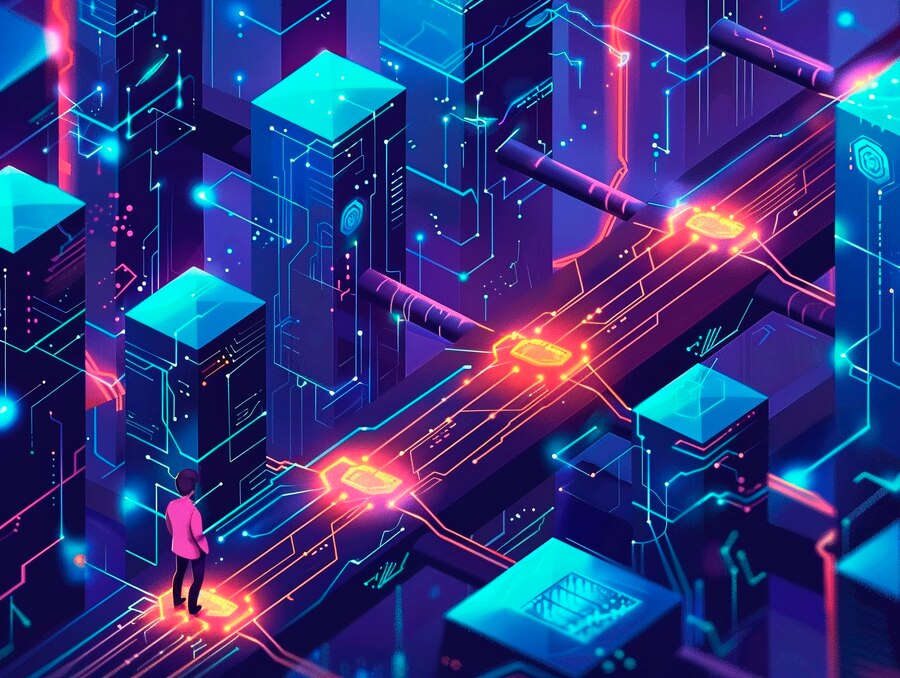Working Hours: Monday - Saturday, 10 AM - 7 PM
Blog Posted on 30 September, 2024 - 00:53 AM

Horizons of Nanotechnology: Advancing Innovation in the Future of Science and Industry
Nanotechnology, the manipulation of matter on an atomic or molecular scale, represents a revolution in various fields, including materials science, medicine, electronics, and energy. As we explore the horizons of nanotechnology, we uncover the transformative potential it holds for future advancements across multiple industries. This blog will delve into the core concepts of nanotechnology, its applications, challenges, ethical considerations, and future prospects that accompany its rapid development.
Understanding Nanotechnology
Nanotechnology involves the engineering of functional systems at the nanoscale, typically defined as 1 to 100 nanometers. To put this into perspective, a nanometer is one-billionth of a meter—approximately 100,000 times smaller than the diameter of a human hair. At this scale, materials exhibit unique properties and behaviors that differ significantly from their bulk counterparts, allowing for innovative applications.
Key Principles of Nanotechnology
- Quantum Effects: At the nanoscale, quantum mechanics plays a crucial role in the behavior of materials. Electrons, for example, can exhibit wave-like properties, leading to unique electrical, optical, and magnetic behaviors. This phenomenon is harnessed in applications like quantum dots for display technologies.
- Increased Surface Area: Nanomaterials have a significantly higher surface area-to-volume ratio, enhancing their reactivity and enabling better performance in various applications. This characteristic is essential in catalysis and drug delivery systems.
- Self-Assembly: Nanotechnology leverages the principles of self-assembly, where molecules autonomously organize into structured patterns. This concept is utilized in creating nanoscale devices and materials with desired properties.
- Tailored Properties: Engineers can design nanomaterials to exhibit specific characteristics, such as enhanced strength, conductivity, or reactivity, allowing for customized solutions to various challenges.
Applications of Nanotechnology
Nanotechnology has made substantial inroads across diverse fields. Here are some notable applications:
- Medicine and Healthcare
- Targeted Drug Delivery: Nanoparticles can be designed to bind specifically to cancer cells, allowing for targeted treatment that spares healthy tissues. This precision reduces side effects and enhances therapeutic outcomes.
- Diagnostic Imaging: Nanoparticles can improve imaging techniques such as MRI and CT scans, providing clearer and more detailed images of internal organs. Quantum dots and gold nanoparticles are promising candidates for enhancing imaging modalities.
- Nanomedicine: The field of nanomedicine focuses on using nanoscale materials for medical applications, including the development of biosensors for real-time monitoring of health conditions and the use of nanorobots for minimally invasive surgeries.
- Electronics
- Nanoscale Transistors: Transistors at the nanoscale enable faster processing speeds and lower power consumption in electronic devices. Companies like Intel are exploring these advancements to continue scaling down microprocessors.
- Flexible Electronics: Nanotechnology facilitates the creation of flexible and stretchable electronic devices, paving the way for wearables and other innovative applications. Flexible displays and smart textiles are just a few examples.
- Energy-Efficient Displays: Nanotechnology has improved display technologies, such as OLEDs (Organic Light-Emitting Diodes), which are now thinner, lighter, and consume less power than traditional LCD screens.
- Energy
- Solar Cells: Nanostructured materials enhance the efficiency of solar cells by increasing light absorption and charge separation. Perovskite solar cells, a product of nanotechnology, have shown remarkable efficiency improvements.
- Energy Storage: Nanomaterials improve battery technology, enabling higher energy densities and faster charging times. Lithium-ion batteries with nanostructured electrodes exhibit significant performance enhancements.
- Hydrogen Production: Nanotechnology is used to develop more efficient catalysts for hydrogen production through water splitting, offering a cleaner and sustainable energy source.
- Environmental Remediation
- Water Purification: Nanomaterials such as carbon nanotubes and nanosilver can effectively remove contaminants from water, offering innovative solutions for clean water access.
- Pollution Detection: Nanosensors can detect hazardous substances at extremely low concentrations, enabling early detection and mitigation of environmental pollutants.
- Hydrogen Production: Nanoparticles can be used to remediate contaminated soil by breaking down harmful substances into less toxic forms, improving soil health and safety.
- Food and Agriculture
- Food Packaging: Nanomaterials enhance food packaging, providing better barrier properties and extending shelf life. Active packaging with nanosensors can monitor freshness and detect spoilage.
- Precision Agriculture: Nanotechnology enables precise monitoring of soil conditions, pest detection, and crop health assessment, leading to more sustainable and efficient farming practices.
- Nutrient Delivery: Nanocarriers can deliver nutrients and pesticides more effectively, reducing waste and improving crop yields while minimizing environmental impact.
Nanotechnology is revolutionizing medicine, offering breakthroughs in diagnosis, treatment, and drug delivery. Nanoparticles can be engineered to deliver drugs directly to targeted cells, improving efficacy while minimizing side effects. For example:
The electronics industry benefits significantly from nanotechnology through the development of smaller, faster, and more efficient devices. Innovations include:
In the energy sector, nanotechnology plays a vital role in improving energy efficiency and harnessing renewable resources. Key advancements include:
Nanotechnology is also employed in environmental applications, aiding in pollution reduction and resource management:
Nanotechnology is making significant strides in the food and agriculture sectors:
Challenges and Limitations
While nanotechnology holds immense promise, several challenges need to be addressed:
- Health and Safety Concerns
- Environmental Impact
- Regulatory Frameworks
- Public Perception
- Technical Challenges
The potential health effects of exposure to nanomaterials are still under investigation. Research is necessary to understand how nanoparticles interact with biological systems and their long-term effects on human health. Regulatory frameworks are essential to ensure safety standards for nanomaterials used in consumer products and pharmaceuticals.
The environmental implications of nanotechnology must be thoroughly evaluated. As nanomaterials enter ecosystems, their behavior and interactions with living organisms require careful study. Potential risks associated with the disposal and degradation of nanomaterials should be assessed to prevent unintended consequences.
The rapid advancement of nanotechnology outpaces existing regulatory frameworks. Governments and regulatory agencies must develop guidelines and standards to govern the production, use, and disposal of nanomaterials, ensuring public safety while fostering innovation.
Public perception of nanotechnology can be influenced by a lack of understanding or misinformation. Education and outreach initiatives are crucial to inform the public about the benefits and risks associated with nanotechnology, fostering informed discussions and acceptance.
Developing nanomaterials and scaling production processes to meet commercial demands presents technical challenges. Ensuring consistency, reproducibility, and quality control in nanomaterial production is critical for widespread adoption.
Ethical Considerations
The advancement of nanotechnology raises ethical questions that require careful consideration:
- Equity and Access
- Privacy Concerns
- Intellectual Property Rights
- Informed Consent
As nanotechnology advances, ensuring equitable access to its benefits becomes essential. Efforts must be made to prevent a divide between those who can afford advanced technologies and those who cannot, particularly in healthcare and education.
The integration of nanotechnology in everyday devices, such as wearables and smart home technologies, raises concerns about data privacy. Safeguarding personal information collected through these technologies is paramount.
The development of nanotechnology innovations often involves complex intellectual property issues. Striking a balance between protecting intellectual property and promoting collaboration and sharing of knowledge is crucial for the advancement of the field.
In medical applications, the use of nanotechnology raises questions about informed consent. Patients must be adequately informed about the risks and benefits of treatments involving nanomaterials.
Future Prospects
As we look to the future, the horizons of nanotechnology are filled with exciting possibilities:
- Personalized Medicine
- Smart Materials
- Space Exploration
- Sustainable Solutions
- Artificial Intelligence Integration
- Advanced Manufacturing
Advancements in nanotechnology are paving the way for personalized medicine, where treatments are tailored to individual patients based on their genetic makeup and health profiles. Nanoparticles can be designed to carry specific drugs or therapies, optimizing treatment outcomes.
The development of smart materials that respond to external stimuli—such as temperature, light, or pressure—will enable innovative applications in various industries, from construction to healthcare. These materials can adapt their properties in real-time, improving functionality and performance.
Nanotechnology could play a significant role in space exploration, where lightweight and durable materials are essential. Nanoscale coatings and composites can enhance spacecraft performance and protect against harsh environmental conditions.
Nanotechnology holds the potential to contribute to sustainable solutions for global challenges, such as climate change and resource scarcity. Innovations in energy storage, water purification, and pollution reduction can drive sustainable development.
The integration of nanotechnology with artificial intelligence (AI) can lead to smarter materials and systems. AI can optimize the design and manufacturing processes of nanomaterials, enhancing their performance and application in various fields.
Nanotechnology will revolutionize manufacturing processes through the development of new techniques such as 3D printing at the nanoscale. This advancement will enable the creation of complex structures with tailored properties, leading to innovative products and solutions.
Case Studies of Nanotechnology in Action
To further illustrate the impact of nanotechnology, here are a few notable case studies:
- The Use of Silver Nanoparticles in Healthcare
- Carbon Nanotubes in Electronics
- Nanostructured Coatings for Corrosion Resistance
Silver nanoparticles have gained recognition for their antibacterial properties, making them invaluable in wound dressings, coatings for medical devices, and consumer products. Their ability to inhibit bacterial growth while being biocompatible highlights the benefits of nanotechnology in healthcare.
Carbon nanotubes (CNTs) have emerged as a promising material in electronics due to their exceptional electrical conductivity and mechanical strength. They are used in developing next-generation transistors, sensors, and energy storage devices, paving the way for faster and more efficient electronics.
Industries are increasingly adopting nanostructured coatings to protect surfaces from corrosion and wear. These coatings enhance the durability of materials used in construction, automotive, and aerospace applications, reducing maintenance costs and extending the lifespan of products.
“Nanotechnology is not just the future; it's the key to unlocking unprecedented innovations that will transform science and industry, creating a smarter, more efficient world.”
Conclusion
The horizons of nanotechnology represent a frontier of innovation that is poised to reshape the future of science and industry. With applications spanning medicine, electronics, energy, and environmental remediation, nanotechnology offers solutions to some of the most pressing challenges facing humanity today. As we navigate the complexities of this field, addressing health, safety, ethical, and regulatory considerations will be crucial to ensuring that the benefits of nanotechnology are realized responsibly and equitably.
By fostering collaboration between researchers, industry leaders, and policymakers, we can harness the power of nanotechnology to create a brighter, more sustainable future. The journey into the nanoscale is just beginning, and the possibilities are as limitless as our imagination.
Call to Action
As we stand at the cusp of a new era driven by nanotechnology, it is essential for stakeholders—scientists, policymakers, educators, and the public—to engage in discussions about the future of this field. Investing in education and research, developing robust regulatory frameworks, and fostering public awareness will empower society to leverage nanotechnology's potential while addressing its challenges.
Insightful Blogs
Discover insightful blogs that offer valuable perspectives, expert opinions, and engaging content on the latest trends and developments.
Get In Touch
With Us
We are headquartered in Kolkata, India. Send us your message and we shall get back to you soon.
Come and See the Future with Us
Let's make something great together. We are trusted by over 50+ clients. Join them by using our services and grow your business.




